Topic – Did wealth matter?
LO: RIC
To link reading to our current topic (Time Travel – Transport), the children in Year 4 were asked: “Did wealth affect the way people travelled?”
One of the history age related requirements for Year 4 is that, children recognise that the lives of wealthy people were very different from those of poor people.
With this in mind, the class were given a RIC reading starter as a fifteen minute activity at the beginning of our topic lesson. You have probably heard your child talking about RIC reading activities. These sessions are fairly short and the children have just three questions to answer all with a different focus. This is done independently and, when complete, we discuss the responses to the questions. Purple pens are used to mark, correct, edit and improve answers.
This was our topic themed RIC this week.
Retrieve (fact finding)
What can you see, that is the same, in all three pictures?
Interpret / Inference
Would you need to be rich to stay in these rooms? Explain
Choice (language, structure, presentation, thinking about the choices made by the author/director/artist)
What do you think the illustrator is trying to do by showing these images?
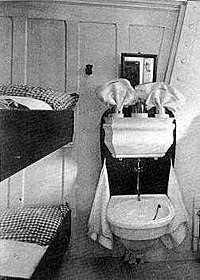
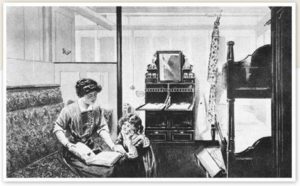
R I can see beds, doors, mirrors, walls and pillows.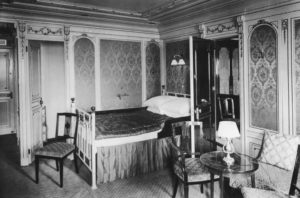
I Yes. They look like bedrooms from old Victorian houses. The third one looks like it would cost a lot of money.
One bedroom looks posh because it has a sofa in. The top room looks very small. I’m not sure if that is a sink or a toilet? Rich people wouldn’t have a toilet next to a bed. Two of the rooms look comfortable because they are bigger.
C I think the pictures show what Victorian bedrooms looked like. Maybe how much houses cost and how big they were? They are all different sizes and only rich people had a sofa in their bedroom. To show that if you had a lot of money you could have a bigger house.
After this activity, we discussed the class system in Victorian times and the impact wealth had on peoples’ lives. I questioned the children more about the images.
“Where do you think they were taken?
What have they got to do with transport?
Are they all in the same place?”
There were some superb responses and the children were intrigued to find out more. With a few clues, I informed the class that the rooms were all cabins on the Titanic! This then created lots more discussion about the famous disaster. Next, we will look at a cross section of the ship and where each type of cabin was situated. Did this affect survival rates?
October active travel prize winners
We’ve awarded the final voucher prizes for our October active travel prize draw.
Well done to Isla, Year 2, and Jasraj, Year 4, who won the week 4 and overall October month prizes for travelling to school in an active way.
The Living Streets’ WOW interactive travel tracker allows children to record, in class, their daily journey to school and children will continue to be awarded themed badges at the end of every month for travelling actively.
An active journey includes:
- walking
- scooting
- biking
- park and stride
We want to reduce the number of cars outside school so if you do have to travel by car, we recommend parking away from the school gate maybe at our preferred park and stride location, Marks & Spencer.
As always, keep safe while travelling.
Why is a square number called a square number?
Using counters and cubes, we investigated what square and cube numbers are and why they were given those names. Once we figured it out, it became pretty obvious.


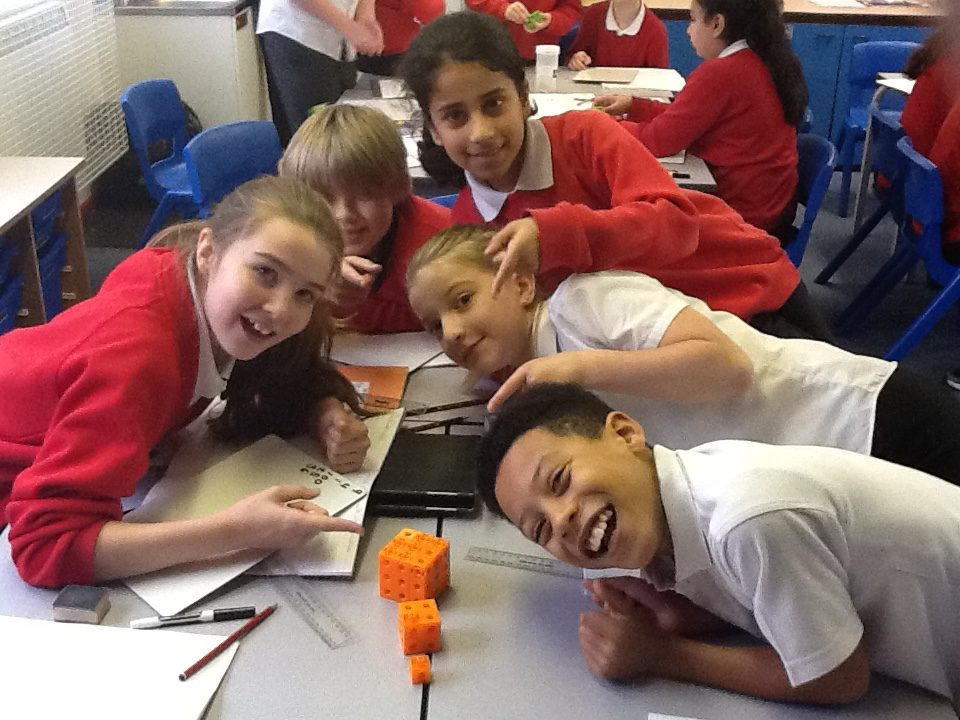
Who is Ada Lovelace?
This week, as part of our Time Travel topic, learning all about inventions, we’ve been focusing on local inventions and inventors. Having explored what inventions have come from Leeds, we now know that a female, British inventor was responsible for the first form of computer programming.
At home, as us about Ada Lovelace and the work we did on creating and debugging algorithms which she made possible over 150 years ago.





Computing Unplugged
Did you know that Ada Lovelace, who was a British inventor, was the first person to invent the computer program? In her honour, Year 5 have enjoyed some offline computing today. We will learn more about Ada tomorrow.

They had six different stations, each with its unique brief. For example:
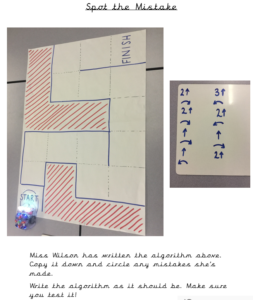
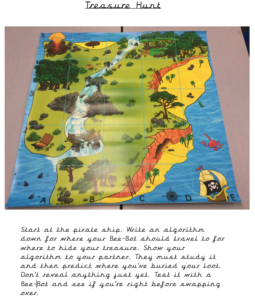
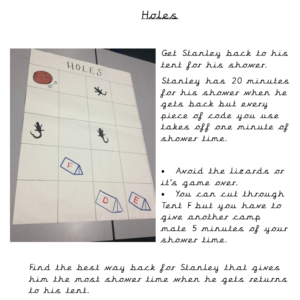
Children had to design algorithms to achieve a goal…
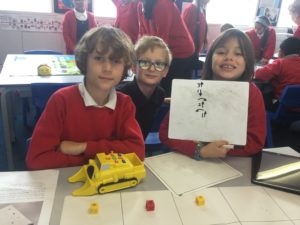
…such as collecting coins in – aptly named – ‘Coin Collect’ whilst avoiding traps…
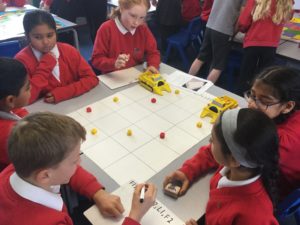
…or they had to debug an existing algorithm in ‘Spot the Mistake’. (Challenge your child to define debugging.)
It was frustrating and challenging at times.
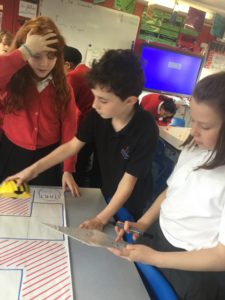
But when we succeeded, it felt great.
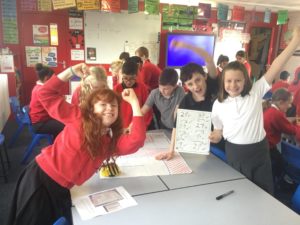
In ‘Treasure Hunt’, we wrote an algorithm to guide our Bee-Bot from the pirate ship to an area on the map to hide the loot. Our team mates had to predict which co-ordinates the algorithm would take the Bee-Bot to…
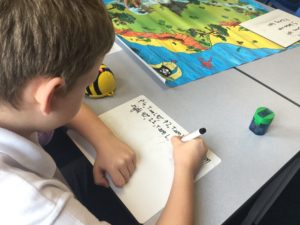
… and at station ‘ABCs’, we predicted spelling which word (using the Bee-Bot) would give the shortest and longest algorithm, explaining our reasoning for why we thought so. Of course, then we had to prove it.
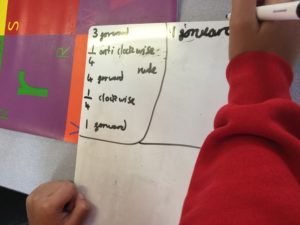
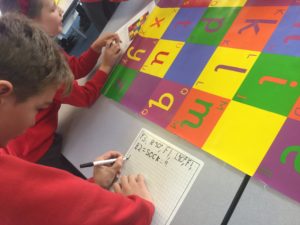
We also used logical reasoning to find the best route back for Stanley (from our class novel, Holes) to his tent for his shower – every piece of code used was in exchange for one minute of precious showering. Was it worth it to cut through Tent F and trade 5 minutes of tub time? It was important to avoid the lethal lizards!
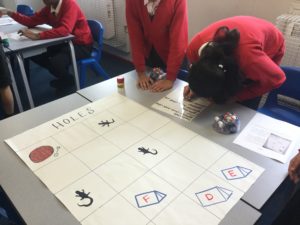
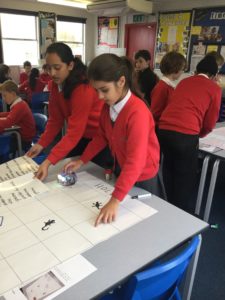
At the ‘Pocket Money’ station, we had to find the best routes for collecting different totals. A challenge was to show finding £2.54 in three different ways.
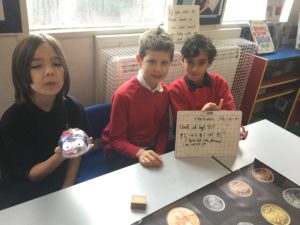
Well done to Year 5 for working brilliantly in their teams.
DT Catapults!
We’ve been designing and making catapults in topic lessons this week. Children used elastic bands, lolly pop sticks and a spoon to create their catapults. It was tricky to get the elastic bands attached but it was good fine motor skill practice! We then tested our catapults by trying to fire a fuzzy missile over the wall of a castle. Finally, we evaluated the effectiveness of our catapults and suggested improvements. 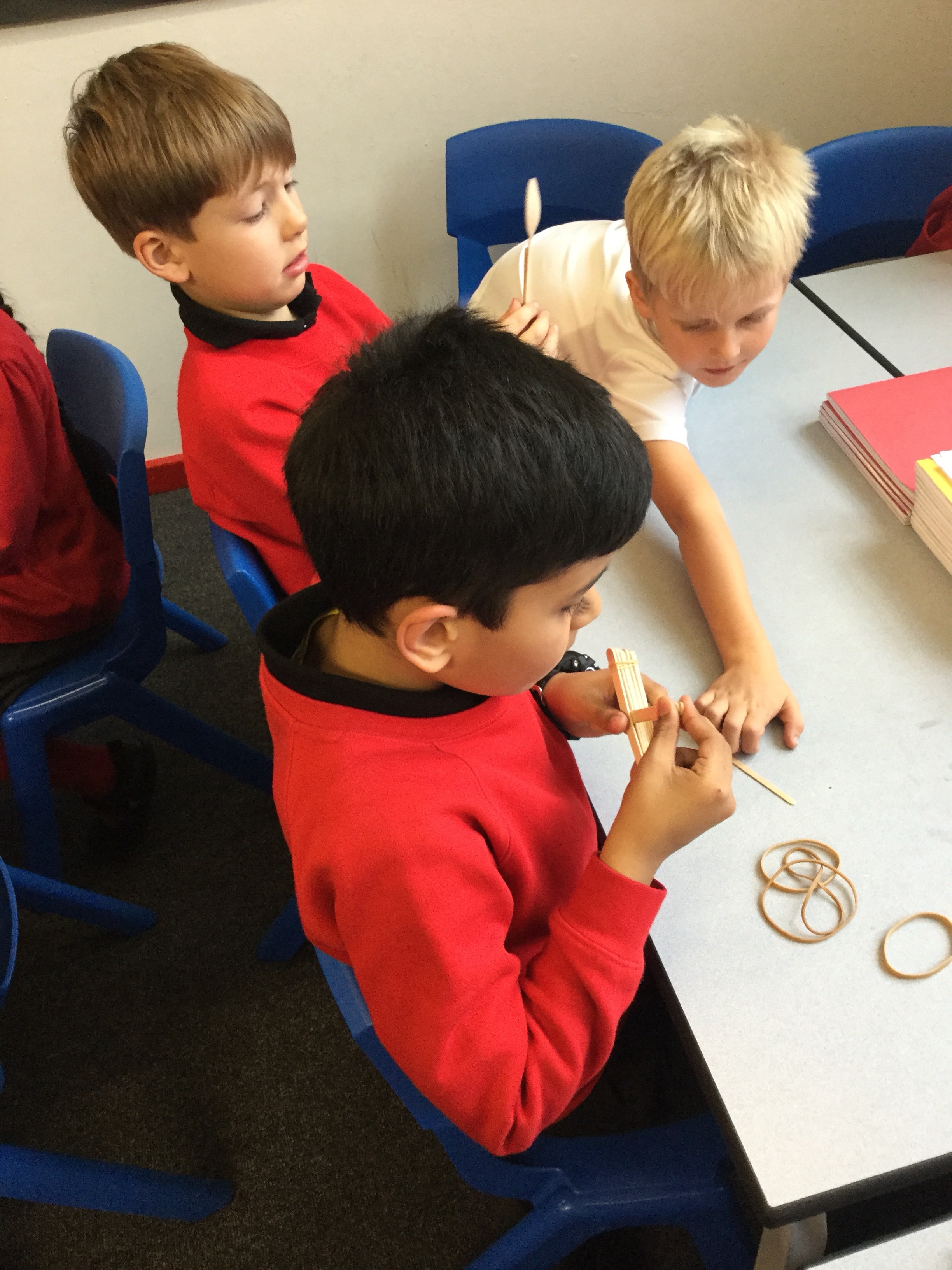
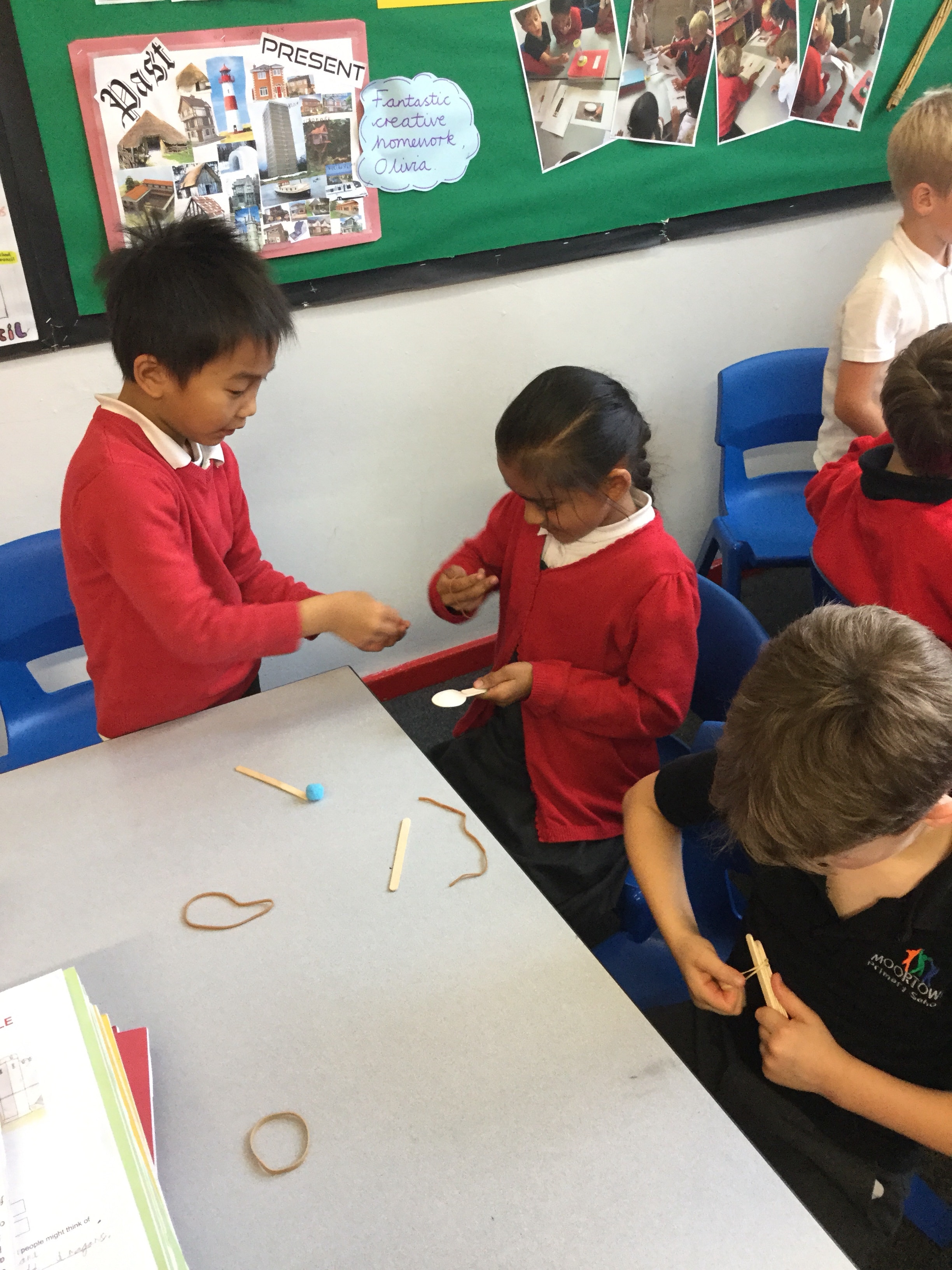
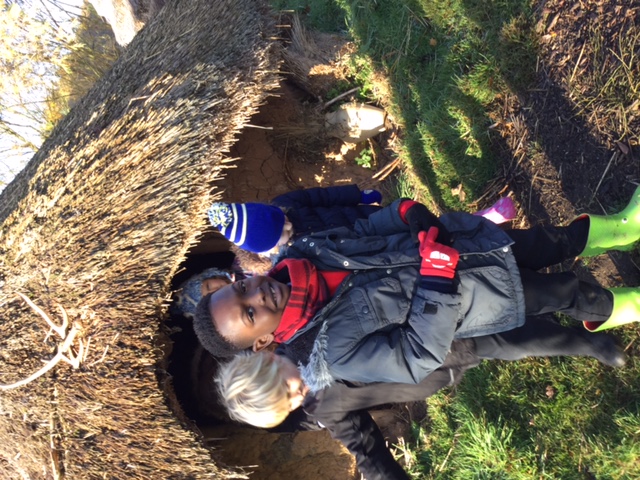
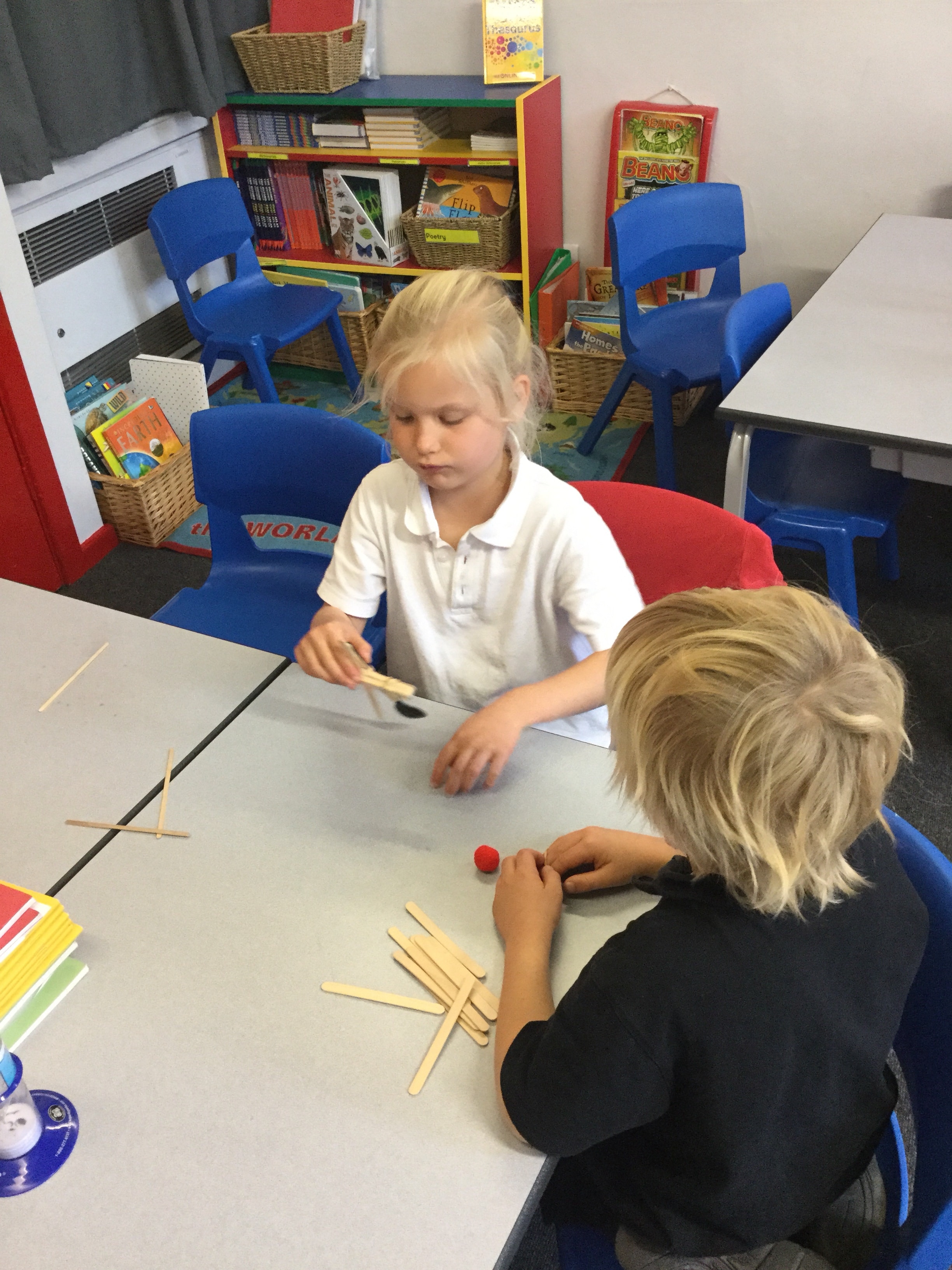

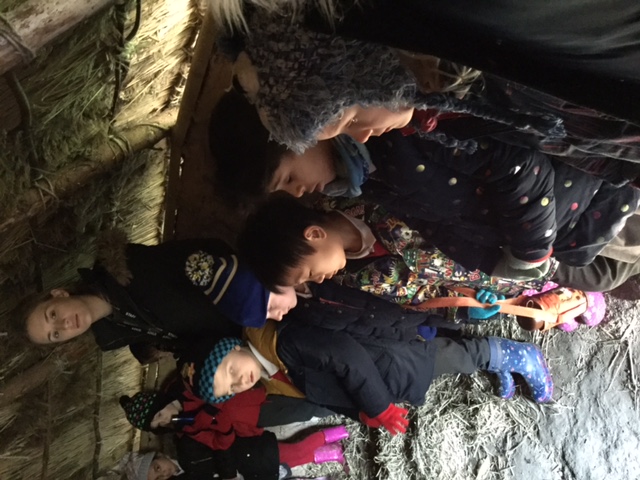
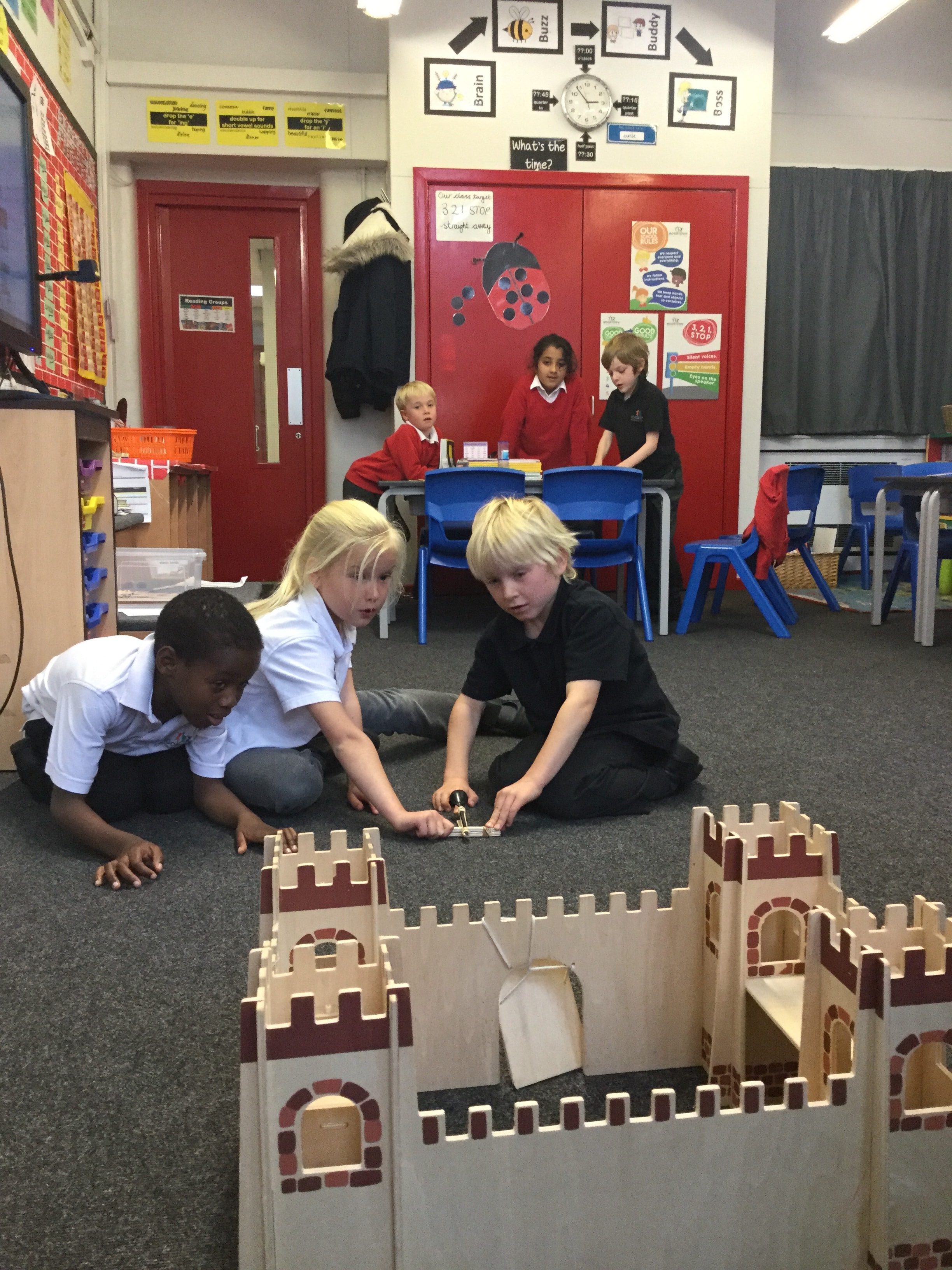
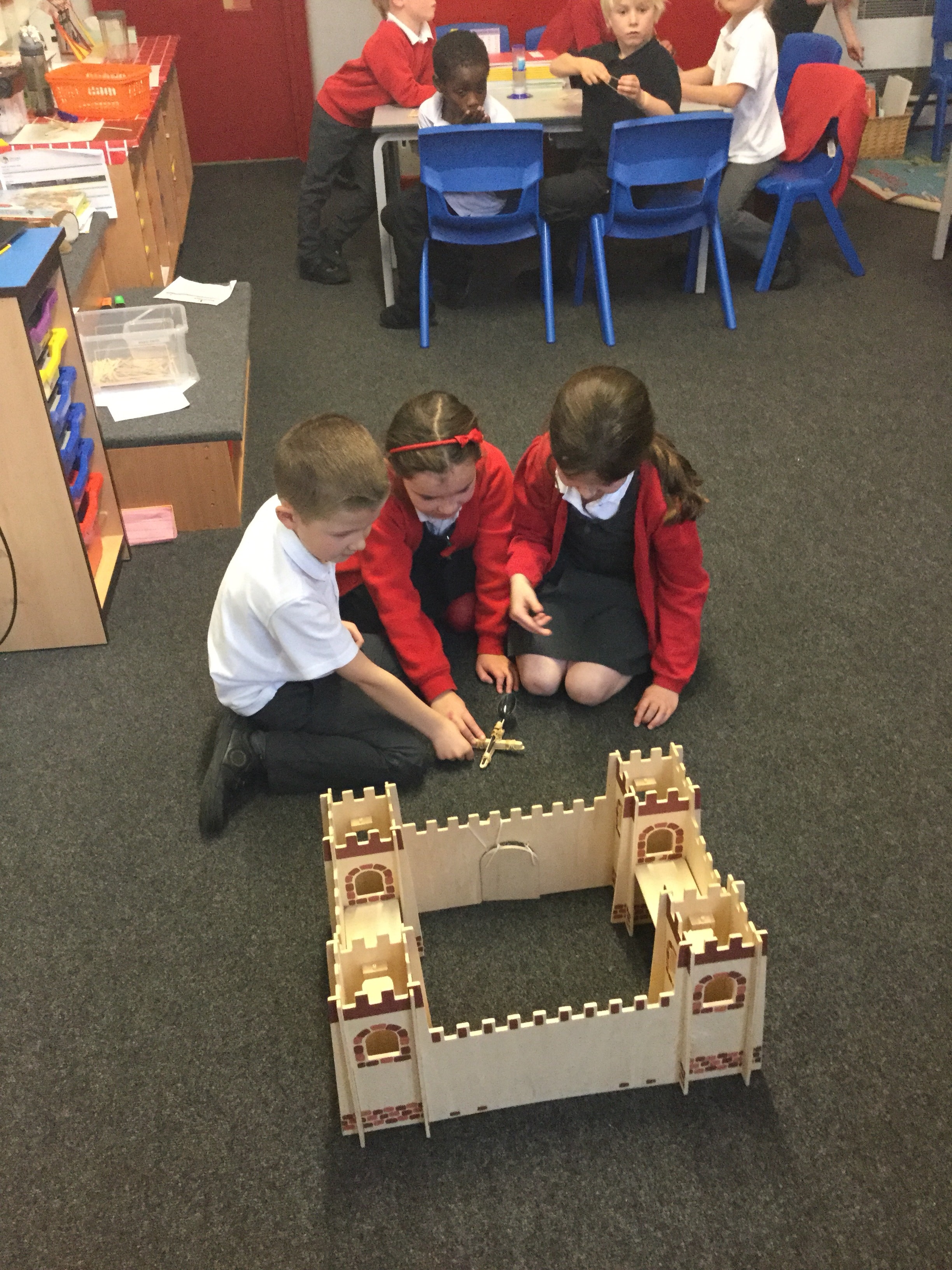

Spelling strategies
We’ve been using different strategies to help us to learn spellings.
Word shape Children draw around the shape of the word to remember the shape the letters make. 
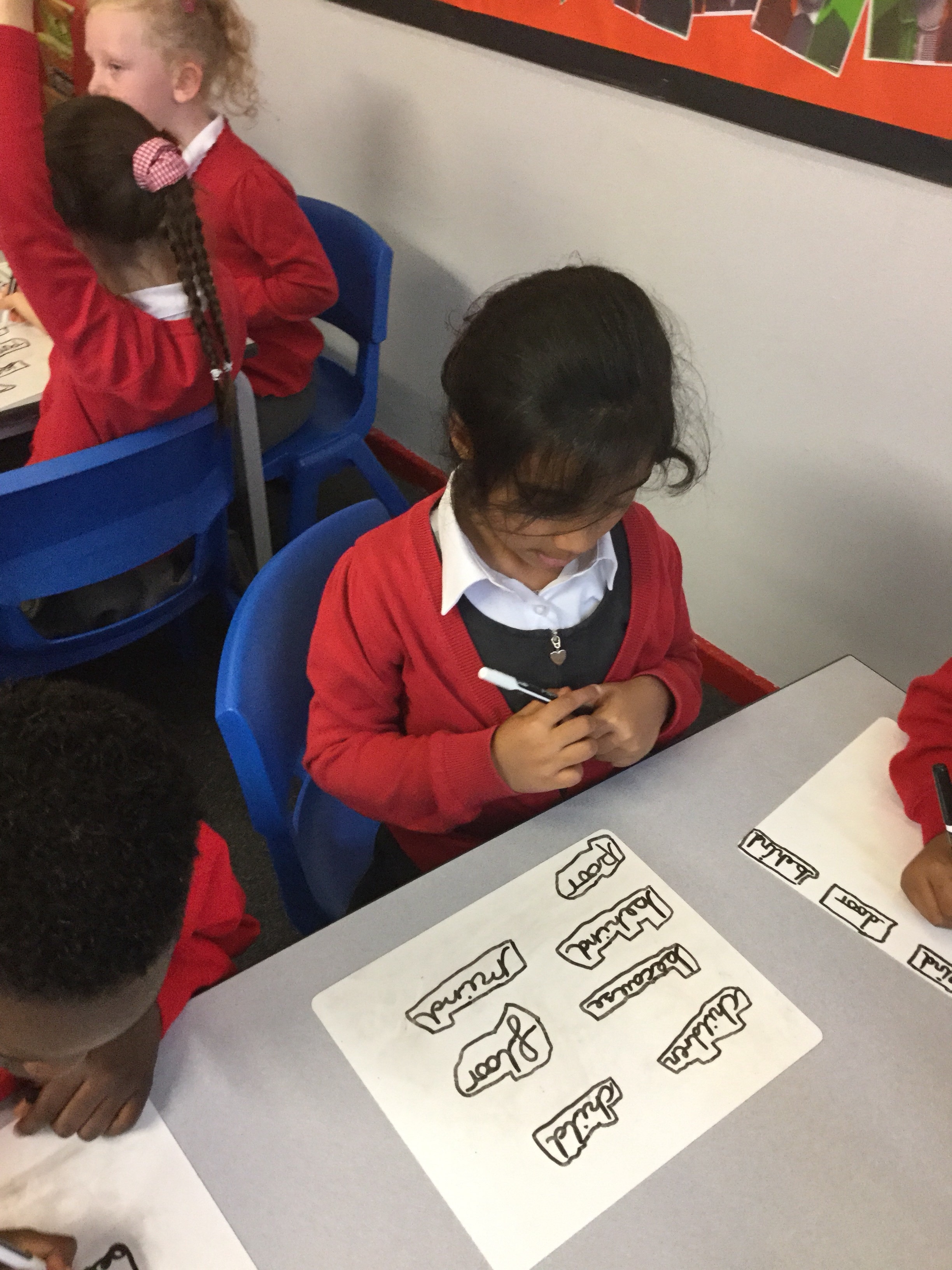
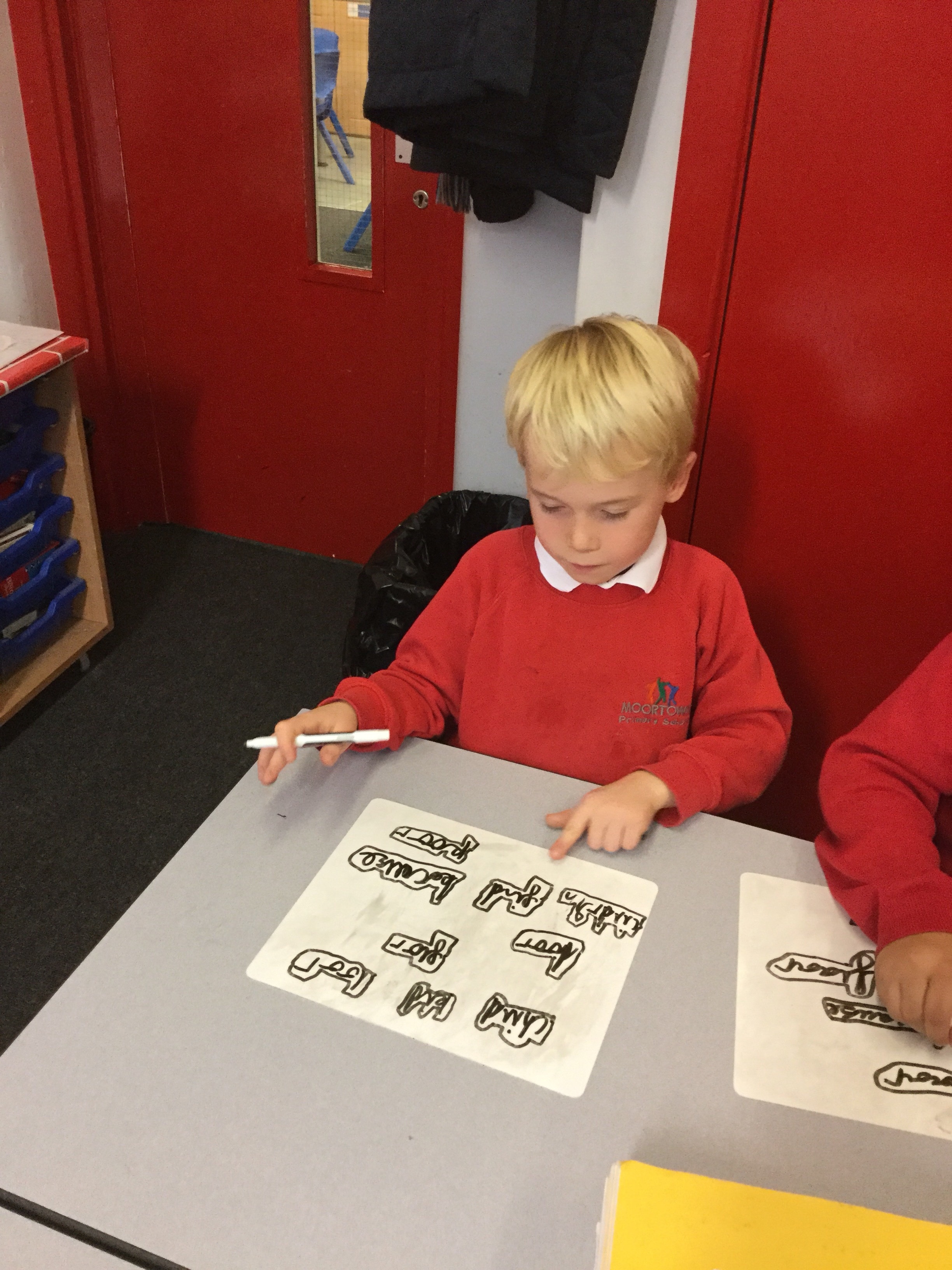
Word pyramids Children begin with the first letter of the word and then add an extra letter on a new line until they have the word written in full. 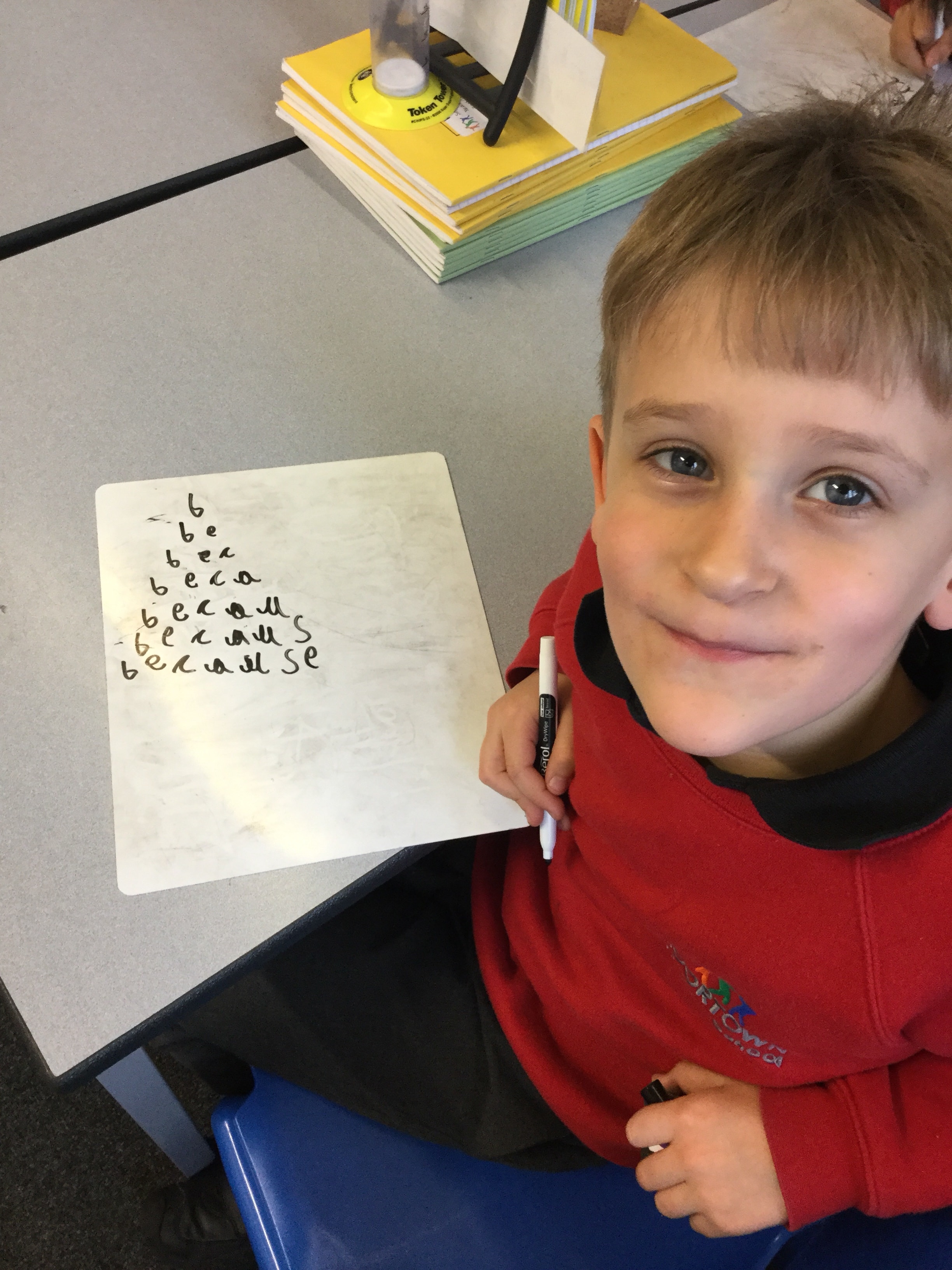
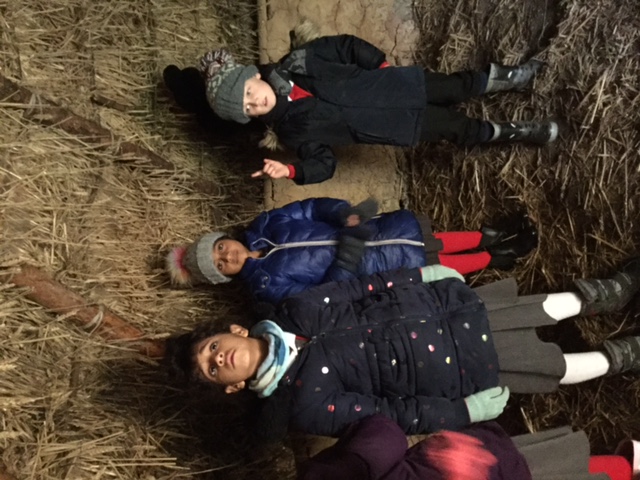
Class Novel Readers
Each day, we read our class novel. At the moment, our class novel is Around the World in Eighty Days. It’s originally by Jules Verne.
This week, the children have taken over the role of reading the novel out to the rest of the class. See some pictures below:
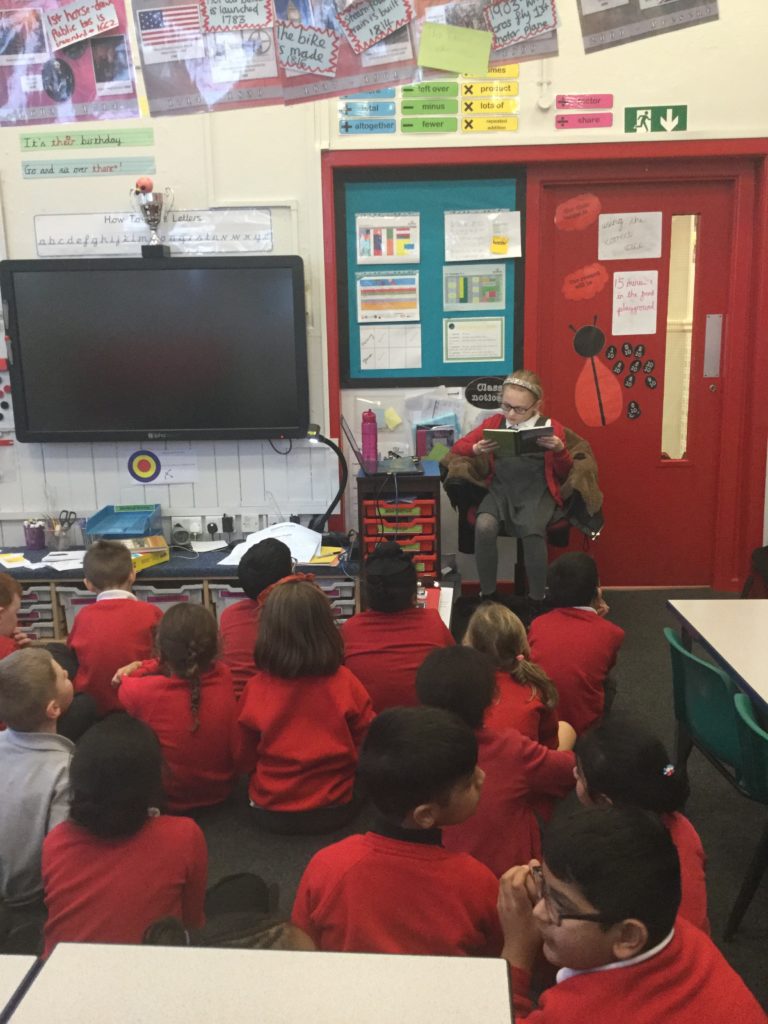
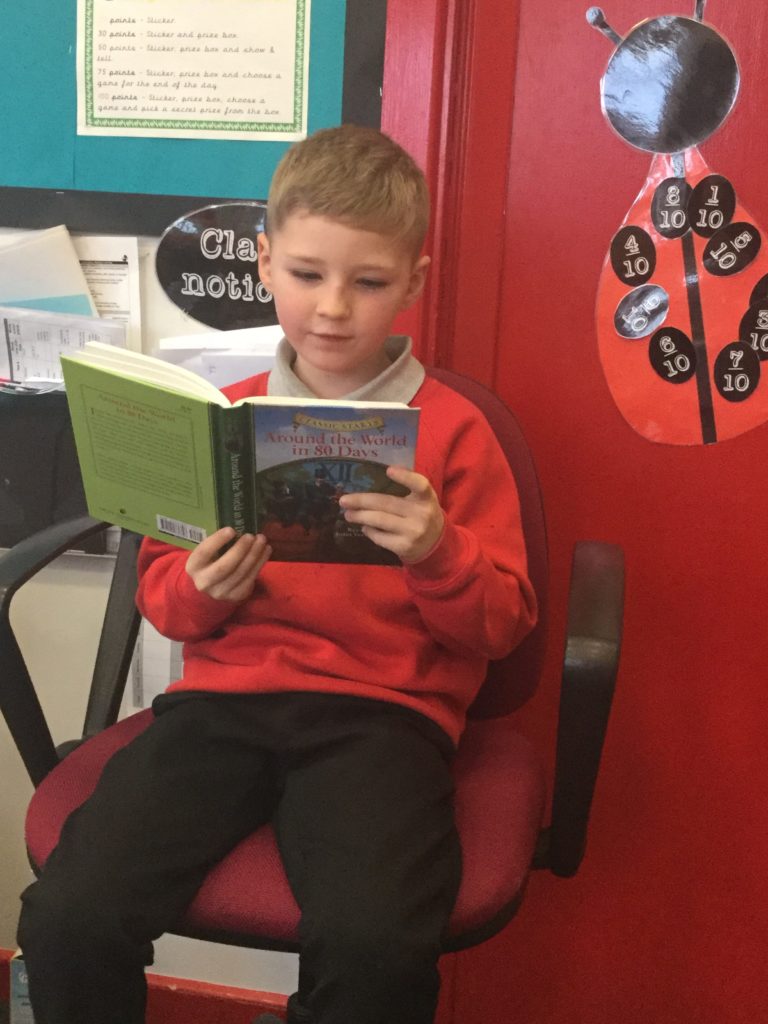
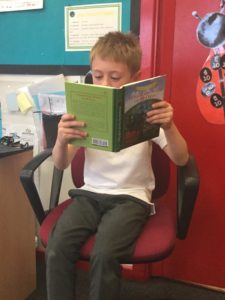
We discussed the meaning of some words we didn’t understand from the class novel. By doing this, we learnt lots of new and interesting vocabulary that we may be able to use in our own writing.
Can your child remember what the words underlined, mean?
- Dawn brought with it a dark and gloomy sky.
- By noon on the second day, the storm finally slowed.
- How the skilled hands of Bunsby and his crew kept the boat moving was a complete mystery to Phileas Fogg.
- The seas were rough and the wind was strong.
- Passeportout was pacing along the upper deck of the boat.
School Council 2018-2019
Meet our newly elected school councillors, chosen democratically by their class.
Their first meeting will be held next week. On the agenda is to discuss bullying (as part of anti-bullying week), Takeover Day and to consider what they might want to spend their library and class reward budgets on.
All children are encouraged to make suggestions to their school councillors (by posting their suggestion slip in each class’ Living and Learning box) for ideas/concerns to be discussed.

Creative Character Descriptions
Year 4 have been writing some character descriptions. After reading some examples, the class thought about the type of vocabulary that creates a good descriptions.
Here are a few ideas we experimented with:
Use adjectives to describe the physical details of a character.
His scaly, wrinkled nose sniffed the air.
Nouns to fit the personality of the character.
Clothes, particularly need to match the personality of the character.
scruffy, torn trousers
The way a character moves gives much away about their personality or feelings.
Shoulders hunched, feet dragging he shuffled towards the darkened windows of home.
Then, the children thought about including prepositions. These can be used for the following:
To show the position of something.
Her bag was under the chair.
The dog crawled between us and lay down at our feet.
His flat was over the shop.
To note the time when something happens.
They arrived on Sunday.
The class starts at 9 a.m.
To the way in which something is done.
We went by train.
They stared at each other without speaking.
Some prepositions are made up of more than one word, for example:
They moved here because of the baby.
We sat next to each other.
The hotel is perched on top of a cliff.
With all this in mine, the children wrote some impressive sentences. We based our descriptions on a legendary hero, Beowulf. Using this famous warrior as our focus, proved to be a great link to our current topic.

Lots of the children searched for ambitious and appropriate words to use in their writing. There are some superb examples below.
A brown, leather belt was draped around his strong waist. Phoebe
The fierce, Anglo Saxon warrior came upon the hideous creature.
The gem encrusted, silver sword lay in his hand.
Noah
A mighty, fearless warrior sailed across the choppy seas. Liam
The revolting, three headed beast flew over the seven seas.
He held his powerful, dangerous dagger in the palm of his hand.
The fearsome warrior hides his silver sword behind his back.
Sakina
The brave hearted warrior trawled through the seas as if he was immortal.
Felix
The ugly, hunched backed monster lurked in the shadows.
Daisy
His bright, yellow, blood shot eyes gleam wickedly in the light of the moon.
Jemima